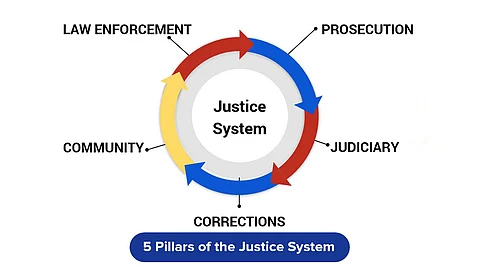
- NEWS
- the EDIT
- COMMENTARY
- BUSINESS
- LIFE
- SHOW
- ACTION
- GLOBAL GOALS
- SNAPS
- DYARYO TIRADA
- MORE

For over a century, the Department of Justice (DoJ) has stood as the nation’s steadfast guardian of justice, shaping the legal landscape while adapting to the tides of political change. From its humble beginnings in 1897 during the revolutionary era, the DoJ has evolved into a modern institution that protects the rule of law and defends the rights of every Filipino.
Born amid revolution and rebuilt through colonial regimes, wars, and periods of political upheaval, the DoJ’s journey reflects the Philippines’ struggle for independence, democracy and justice.
As it marks 127 years of service, the department’s legacy speaks to its resilience and its critical role in building the nation’s legal framework. Today, the DoJ remains the backbone of the country’s legal system, a key institution committed to ensuring that justice is accessible, fair and equitable for all.
The department began during the Revolutionary Assembly in Naic, Cavite, on 17 April 1897. It was then that Don Severino de las Alas was appointed head of the newly formed Department of Grace and Justice.
The department was tasked with establishing the legal framework of the First Philippine Republic after Emilio Aguinaldo declared independence from Spain in 1898. It was a time of great upheaval and transition, as the Philippines grappled with colonial rule, revolution and the fight for sovereignty.
During the American occupation that followed, the DoJ underwent significant changes. It was replaced by the Office of the Attorney General, reflecting the legal structure of the United States.
Under the system, the legal apparatus was restructured to accommodate American common law tradition. It was a crucial period in shaping the foundation of the legal system still in place today.
However, the upheaval did not end there. Under the Japanese occupation during World War II, the DoJ was once again reshuffled. After the war, it was fully restored to its original function, continuing its work to rebuild the country’s shattered legal framework.
The declaration of Martial Law in 1972 by President Ferdinand Marcos Sr. was a turning point, not just for the nation, but for the DoJ as well. The department’s functions were expanded, with the inclusion of several key agencies, such as the National Bureau of Investigation (NBI) and the Bureau of Prisons (now the Bureau of Corrections or BuCor). These agencies remain central to the DoJ’s operations today, underscoring its role in both investigation and correction.
The end of the Marcos era and the drafting of the 1987 Constitution marked another pivotal moment for the DoJ. The new Constitution reaffirmed its role as the government’s principal law agency, responsible for the prosecution of crimes and the provision of legal counsel.
Its mandate includes overseeing the National Prosecution Service, the Public Attorney’s Office (PAO), and the Bureau of Immigration (BI), among others. These agencies continue to play vital roles in maintaining law and order across the country.
One of the DoJ’s most notable recent milestones is its involvement in modernizing the Philippine legal system. In 2010, the DoJ spearheaded the formation of the Criminal Code Committee (CCC), an ambitious initiative aimed at overhauling the country’s outdated penal laws, some of which dated back to the 1930s.
The project, supported by international partners, seeks to simplify and update the criminal code, making it more accessible and reflective of contemporary Filipino society. The CCC’s collaborative approach, involving various stakeholders across the justice system, promises to deliver a criminal code that better serves the needs of the people and enhances the efficiency of the justice system.
Beyond its foundational role in the criminal justice system, the DoJ has also taken on modern challenges. It is at the forefront of the fight against cybercrime, implementing the Cybercrime Prevention Act and tackling money laundering under the Anti-Money Laundering Act. The department’s efforts in these areas demonstrate its adaptability in responding to new and emerging threats.
Additionally, the DoJ plays a vital role in protecting the most vulnerable sectors of society. Through its involvement in the implementation of laws such as the Anti-Trafficking in Persons Act and the Anti-Violence Against Women and Their Children Act, the DoJ is actively engaged in safeguarding human rights and ensuring justice for marginalized communities.
Equally important is its provision of free legal services to indigent Filipinos through the Public Attorney’s Office. By offering legal representation in criminal, civil and labor cases, the DoJ ensures that justice remains accessible to all, regardless of socio-economic status.
Today, as it marks 127 years of service, the DoJ continues to be a cornerstone of justice in the Philippines. Its enduring legacy is built on its commitment to uphold the rule of law, ensure transparency, and deliver fairness to every Filipino. As the legal landscape of the nation evolves, so too does the DoJ, ever ready to face new challenges and uphold its mandate of justice.
